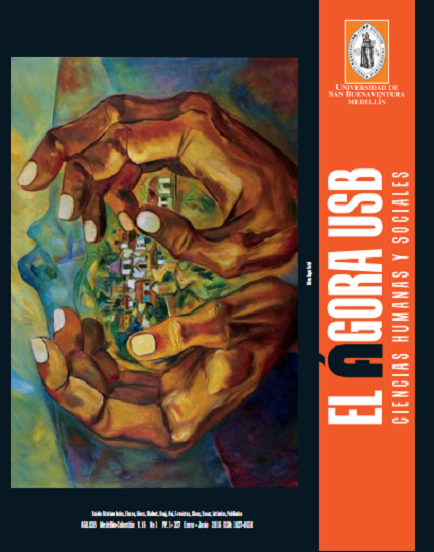The authors are also adhere to the creative commons license 4.0 (https://creativecommons.org/licenses/by-nc-nd/4.0/deed.es)
Attribution - NonCommercial - SinDerivar 4.0 International (CC BY - NC - ND 4.0)
Abstract
This article shares the methodological approach developed by the program “Experiences Teaching Travelling Public Enterprises of Medellin Water Museum” supported by Colciencias and developed by the Public Enterprises of Medellin (EPM) Foundation and EAFIT University in Colombia, which implemented a strategy of focusing on processes of cocreation community participation, in order to take distant communities from the Antioquia territory, options to develop processes of knowledge, understanding, and relationship with water resource, based on scientific information and experiences of the Public Enterprises of Medellin Water Museum in Colombia.
Keywords:
References
Colciencias. (2010). Estrategia nacional de apropiación social de la ciencia, la tecnología y la innovación. Bogotá: Colciencias. Obtenido de http://www.colciencias.gov.co/ sites/default/files/ckeditor_files/files/ESTRATEGIA%20NACIONAL%20DE%20ASCTI_ VFinal.pdf
FEPM & EAFIT. (2014). Procesamiento y análisis de información de la etapa de caracterización. Documento de trabajo del programa “Experiencias pedagógicas Itinerantes Museo del Agua EPM”. Medellín, Colombia.: FEPM & EAFIT.
Gil P, H. (2014). Perfil de los municipios de Urabá. Recopilación documental para el programa “Experiencias pedagógicas Itinerantes Museo del Agua EPM”. Medellín, Colombia.
Gouillart , & Billings. (2013). Community-powered problem solving. USA: Harvard Business Review.
Luna, B., Frank E, L., Bruce B, C., Hanshaw, & Baisley, J. R. (1971). A Procedure for Evaluating Environmental Impact. En Geological Survey Circular 645. United States Department of the Interior . (págs. 4-6). Washintong. USA. Obtenido de http://eps.berkeley. edu/people/lunaleopold/%28118%29%20A%20Procedure%20for%20Evaluating%20 Environmental%20Impact.pdf
Pérez Bustos, T., Franco Avellaneda, M., Lozano Borda, M., Falla, S., & Papagayo, D. (2012). Iniciativas de Apropiación Social de la Ciencia y la Tecnología en Colombia: tendencias y retos para una comprensión más amplia de estas dinámicas. História, Ciências, Saúde – Manguinhos, 115-137. Obtenido de http://www.javeriana.edu.co/ documents/12847/2951856/Apropiacion+social+de+la+CyT...Tania+Perez,%20et+al.. pdf/0893bac0-06f0-4619-94f2-524bcc58983d
Ramaswamy, V., & Ozcan, K. (2014). The Co-Creation Paradigm. ISBN 978-0-8047-8915-8. California. USA.: Stanford University Press.
SECAB. (2004). Catálog de experiencias en aprobación social de la ciencia, la tecnología y la innovación ASCTI de los países de CAB. Bogotá : SECAB. Obtenido de http:// convenioandresbello.org/ascyt/LIBRO_ASCTI.pdf
Venkat, R., & Gouillart, F. (2010). The power of Co-creation. New York. USA: Ed. Free Press – Simon &Speakers Boureau.
Venkat, R., & Gouillart, F. (2012). La co-creación de valor y experiencias. Ed. Tantum. RAMASWAMY.




















